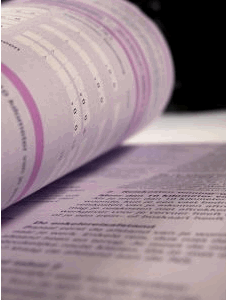Inflation, Taxes, and Saving
by Brandon Fuller What's so bad about inflation? Economists typically break the discussion of inflation costs into two categories: the costs of low, predictable inflation and the costs of high, unpredictable inflation.
What's so bad about inflation? Economists typically break the discussion of inflation costs into two categories: the costs of low, predictable inflation and the costs of high, unpredictable inflation.Economies with high, unpredictable inflation tend to experience slower growth rates. With unpredictable inflation, borrowers and lenders cannot be sure what the real interest rate will turn out to be over the course of a loan. This uncertainty makes people less likely to lend their money (for example, by buying bonds), which in turn leads to less investment and a slower rate of long-term economic growth.
If the inflation rate is low and stable, it imposes fewer economic costs. As prices rise, one dollar will purchase fewer and fewer goods and services over time. This slow erosion of purchasing power encourages people to invest their savings in interest-bearing accounts, keep more of their money in the bank and less in currency, and generally spend more time managing their assets than they would in the absence of inflation; but savings rates are pretty much unaffected… right?
Not quite. Even if inflation is relatively tame, it can still have some major consequences on savings rates because of the way investment gains are taxed. In a recent Slate column, Henry Blodget argues that the design of the tax system in the United States discourages saving—in part because portions of the tax code do not attempt to correct for distortions caused by inflation. Read Blodget's article to find out more about the tax treatment of savings and the tax distortions from inflation.
Discussion Questions
1. According to Blodget, what non–tax-related factors explain the negative U.S. personal savings rate in 2005 and 2006?
2. Suppose you purchase a $1,000 T-bill that offers a 4% nominal rate of return. The inflation rate is 3% per year and you're in the 15% tax bracket.
- What is the before-tax nominal return on your T-bill in the first year?
- As Blodget notes, the U.S. government treats the return on your T-bill as income and assesses a 15% tax on the nominal return from your T-bill. How much tax would you pay on your nominal return from the T-bill?
- By how much does inflation erode the purchasing power of your nominal return?
- What is the after-tax, inflation-adjusted return on your T-bill in the first year?
4. How does low, predictable inflation distort savings decisions when the government taxes the nominal gains on savings vehicles such as stocks and bonds?
5. What are Blodget's suggestions for making the tax system less hostile to saving? How does he suggest taxing the capital gains from the sale of stocks? How would he treat the interest earned on T-bills? Can you think of other changes to the tax system that would encourage rather than discourage saving?
Labels: Finance, Inflation, Interest Rate, Taxes



1 Comments:
At 7:08 AM, April 17, 2007, Unknown
said…
Unknown
said…
This comment has been removed by a blog administrator.
Post a Comment
<< Home